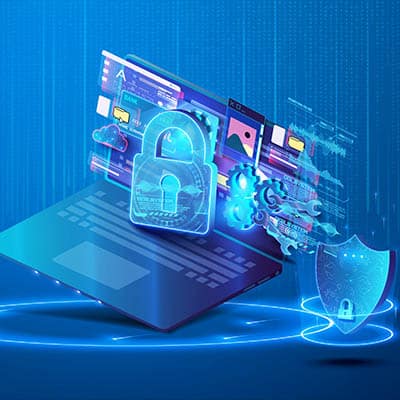
For quite a while it took an actual disaster to encourage business leaders to allocate any time and money to put towards cybersecurity. Many businesses still don’t, in fact. Those that have, while absolutely prudent in their use of resources to help ward off security problems, may forget that there are still things that need to be done aside from employee training to keep their security up. Let’s go through a few things that every organization should be doing to maintain the security of their information systems.
Setting Up Secure Wi-Fi
A lot of people utilize onsite wireless Internet to access company resources. In doing so they are effectively connecting their devices—whether the business owns them or not—to business networks, which can lead to security problems. One of the best ways to mitigate these risks is to ensure that your organization’s Wi-Fi is secured. By this we mean that you have to change router passwords regularly, ensure that the firmware is updated, and make sure guests don’t have access to the same network that your employees do.
Antivirus and Anti-Malware
Antivirus tools are designed to search for malicious code and get rid of it. With so much information coming in and out of a business’ network, there will be at least some malicious code transferred as well. The whole job of the antivirus program is to find that (or potentially malicious) malicious code and separate it from other actionable code. Most businesses can obtain antivirus tools that cover all endpoints on a network.
Firewalls
Firewalls work in a similar fashion. A firewall is basically a filter that constantly monitors network traffic and isolates and quarantines data that may be problematic. A firewall can be set up between any part of a computing infrastructure so that traffic is consistently monitored with updated threat definitions.
Password Managers
The password manager is a third-party program that allows users to save all their passwords to their accounts. Not only does it give users a way to gain access quickly, it also gives them incentive to create more complex passwords (since they don’t have to remember them). Password managers encrypt all passwords inside an account making it the most secure way to store and use passwords for all different types of accounts.
Multi-Factor Authentication
Multi-factor authentication (or often two-factor authentication) is a system where users need to sign in the traditional method, but then will be sent a code (typically via an app on their mobile device) that will allow them to gain access. Adding the extra layer of security goes a long way toward keeping the data and applications behind passwords safe and secure
At Twintel, we have the knowledge and experience necessary to help any business stay secure and keep downtime to a minimum. Give us a call at 888-428-0599 or schedule a meeting today to learn more.
Twintel has grown into an expansive, full team of IT services professionals, acting as the outsourced IT department of non-profits, small to mid-size businesses, and enterprise-level corporations in Orange County, across California, and nationally.
Today, it’s the strength and deep expertise of the Twintel team that drives positive outcomes for clients. Each of the support staff, technicians, and engineers works diligently each day to make sure that the companies served have the seamless, secure, and stable IT environments needed to allow them to pursue their organizational objectives.